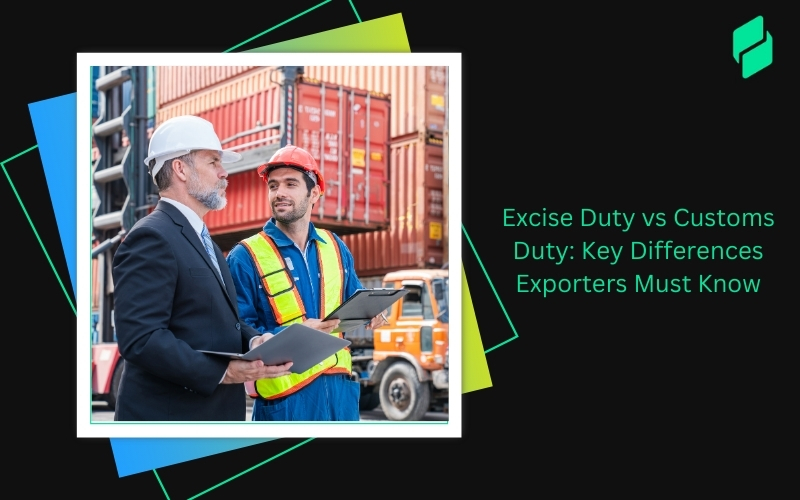What is NVOCC, and why is it pivotal in the shipping industry? As the backbone of international trade, the shipping sector relies heavily on Non-Vessel Operating Common Carriers (NVOCCs).
Unlike traditional freight forwarders, NVOCCs play a unique role by managing cargo transportation without owning vessels. They bridge the gap between shippers and ocean carriers, ensuring seamless import and export operations.
In this article, we'll delve into the intricacies of NVOCCs, differentiate them from freight forwarders, and explore their operational strategies. Join us as we navigate the crucial contributions of NVOCCs to global trade.
Optimize your business: use unlimited savings with Pazago fulfilled now!
Get Started ->What is NVOCC?

Non-Vessel Operating Common Carriers (NVOCCs) are essential intermediaries in the shipping industry. They facilitate the transportation of cargo without owning or operating the vessels themselves.
By acting as a bridge between shippers and vessel-operating carriers, NVOCCs streamline the logistics of international trade.
Here's a structured breakdown of their roles and functions:
The Role of NVOCCs as Shipping Intermediaries
NVOCCs act as a bridge between shippers and vessel-operating carriers. They facilitate cargo transport without owning or operating the vessels, making them a vital link in the shipping world.
What Is NVOCC Optimal Way To Shipping Logistics?
A primary function of NVOCCs is to negotiate rates and lease cargo space on ships. They consolidate shipments from various shippers to optimize space and costs, providing competitive rates for businesses involved in import and export shipping.
NVOCCs' Approach to Tailored Shipping Solutions
NVOCCs are responsible for marketing their services to exporters and importers. They offer tailored solutions to meet specific shipping needs, ensuring reliable and efficient transportation options for their clients.
The Comprehensive Coordination by NVOCCs
From cargo loading to transfer and delivery, NVOCCs coordinate every step of the process. They work with port authorities, customs agents, and inland transportation providers to ensure a seamless journey for the cargo.
Let’s understand this by an example:
Imagine a small business in India wants to export textiles to the United States. Instead of dealing directly with shipping lines, which might be costly and complex, the business uses an NVOCC.
The NVOCC consolidates the textiles with other cargo, securing a better rate. It arranges for the textiles to be transported from the factory to the port, loaded onto a ship, and then delivered to the buyer in the U.S.
The NVOCC handles all the logistics, making the process smoother and more cost-effective for the small business.
Now that we've seen NVOCCs in action, let's delve into why they're so pivotal for the shipping industry.
What Is NVOCC Importance In Shipping Industry?
Non-Vessel Operating Common Carriers (NVOCCs) are instrumental in bridging the gap between small and medium-sized enterprises (SMEs) and the vast opportunities of international trade. Here's how they play a crucial role in the shipping industry:
How NVOCCs Open Doors to International Markets?
NVOCCs serve as a gateway for SMEs to access global markets. By consolidating shipments from multiple shippers, they enable smaller businesses to enjoy the benefits of international trade without the need for large cargo volumes.
This democratization of shipping allows SMEs to expand their reach and compete on a global scale.
NVOCCs Simplifying International Logistics
NVOCCs offer comprehensive shipping solutions that go beyond mere transportation. They handle negotiations, book cargo space, and manage documentation, streamlining the entire logistics process.
This not only simplifies international shipping for businesses but also makes it more affordable, especially for those with limited shipping volumes or resources.
The Consolidation and Deconsolidation Advantage of NVOCCs
One of the key strengths of NVOCCs is their ability to consolidate and deconsolidate cargo. This flexibility allows them to accommodate different types and sizes of shipments, making it easier for businesses to tailor their shipping needs according to their schedules and requirements.
Moreover, it ensures that cargo is handled efficiently, reducing the risk of delays or damages.
Curious about the benefits? Let's dive into how NVOCCs actually make shipping a breeze for businesses.
Advantages of Using an NVOCC

Non-Vessel Operating Common Carriers (NVOCCs) offer significant benefits to businesses engaged in international shipping. Here's a structured overview of the key advantages:
Cost-Effective Rates
- Bulk Business Negotiations: NVOCCs consolidate shipments, enabling them to negotiate bulk rates with carriers, resulting in competitive pricing for businesses.
- Savings for Shippers: The cost savings from bulk negotiations are passed on to shippers, making NVOCCs an economical choice for transporting goods.
Personalized Service and Network
- Dedicated Agents: NVOCCs provide personalized service with agents who assist with specific shipping needs, ensuring a smooth process.
- Tracking Facilities: Advanced tracking facilities allow businesses to monitor their shipments in real-time, adding a layer of transparency and control.
- International Network: A well-developed international network ensures efficient handling of cargo across different countries and ports.
Risk Minimization
- Market and Policy Shifts: The shipping industry is prone to fluctuations and changes in policies. NVOCCs absorb these risks, protecting businesses from sudden shifts in costs or regulations.
- Protection for SMEs: This risk mitigation is particularly beneficial for small and medium-sized enterprises that may lack the resources to manage these uncertainties independently.
Looking for personalized service and network benefits with minimal risk, Pazago provides a platform that addresses these needs directly, with tools and services aimed at optimizing shipping costs and simplifying documentation processes.
Before we go further, let's make sure we're clear on the paperwork and fine print.
Documentation and Legal Aspects
Navigating the documentation and legal landscape is crucial for Non-Vessel Operating Common Carriers (NVOCCs) in the shipping industry. Here's a closer look at the key components:
Understanding the Legal Framework
- It's essential for businesses to grasp the legal framework within which NVOCCs operate. This knowledge ensures compliance with international shipping laws and regulations, minimizing legal risks.
- Familiarity with the legal environment helps in understanding the rights, responsibilities, and liabilities of all parties involved in the shipping process.
The House Bill of Lading
- The House Bill of Lading (HBL) is a critical document issued by NVOCCs. It serves as a receipt for the cargo, a contract of carriage, and a document of title.
- The HBL outlines the terms and conditions under which the cargo is transported, making it a significant legal document in international trade.
NVOCC Agreements and Shipping Documents
- NVOCCs enter into agreements with ocean carriers to secure space for cargo. These agreements are vital for ensuring the smooth transport of goods.
- The preparation of shipping documents, including the HBL, is a meticulous process. Accurate and complete documentation is essential for the successful shipment of goods and compliance with customs regulations.
Alright, with the legalese out of the way, let's tackle the big question: NVOCC or freight forwarder?
NVOCC vs. Freight Forwarder: Key Differences
Feeling torn between the two? Let’s break down how to pick your shipping champion.
Choosing Between NVOCC and Freight Forwarder
When deciding between an NVOCC and a freight forwarder for your international shipping needs, consider the following structured framework:
Assess Your Shipping Requirements:
- Type of Cargo: Consider the nature of your cargo and any special handling it may require.
- Volume of Shipments: Determine the volume of your shipments and frequency of transport.
- Destination and Routes: Identify the primary destinations and routes for your shipments.
Evaluate Service Offerings:
NVOCC
- Choose an NVOCC if you need direct control over shipments, cargo consolidation, and competitive rates for large volumes.
- Ideal for businesses with specific trade routes or cargo types.
Freight Forwarder
- Opt for a freight forwarder if you require a range of logistics services, including customs clearance, warehousing, and inland transportation.
- Suitable for businesses looking for a comprehensive logistics solution and a single point of contact.
Consider Cost Implications:
- NVOCC: May offer cost savings for bulk shipments through negotiated rates and cargo consolidation.
- Freight Forwarder: While potentially more expensive, provides value through a wide array of services and convenience.
Prioritize Personal Connection and Service Quality:
- Establish a relationship with your service provider to ensure tailored services, quick problem resolution, and consistent support.
Make Your Decision:
- Based on your specific needs, service level requirements, and the value of the relationship with the provider, choose the option that aligns best with your business objectives.
Making the right choice is crucial. Pazago is here to help you decide between an NVOCC and a freight forwarder, based on your unique needs.
Curious about VOCCs too? Let’s pit them against NVOCCs and see what sets them apart.
NVOCC vs VOCC: Key Differences
NVOCC stands for Non-Vessel Owning Common Carrier, meaning they organize shipping for cargo without owning the vessels. On the other hand, VOCC, or Vessel-Owning Common Carrier, refers to carriers that own and operate their shipping vessels.
Below is a simplified table highlighting their primary differences:
Alright, we’ve talked up NVOCCs quite a bit, but let’s keep it real with some challenges you might face.
Challenges and Considerations
Engaging with Non-Vessel Operating Common Carriers (NVOCCs) can bring numerous benefits to businesses in the shipping industry, but it's important to be aware of certain challenges and considerations:
Understanding the Limitations
- Authority: NVOCCs do not own the vessels they use for shipping, which means their authority over the shipping process is limited compared to direct carriers. This can sometimes lead to less control over schedules and capacities.
- Information Flow: Effective communication and information flow are crucial in the shipping industry. Given that NVOCCs act as intermediaries, there can be challenges related to transparency and real-time updates about shipments.
Considerations for Small and Medium-Sized Businesses (SMEs)
- Cost-Effectiveness: SMEs need to ensure that partnering with an NVOCC is cost-effective and aligns with their budget constraints.
- Customization: It's important for SMEs to find an NVOCC that can provide customized solutions tailored to their specific needs and cargo types.
- Support and Guidance: SMEs often require more support and guidance in navigating international shipping regulations. An NVOCC that offers comprehensive customer service and expert advice can be invaluable.
Conclusion
In conclusion, Non-Vessel Operating Common Carriers (NVOCCs) are crucial in the global shipping industry, providing vital services that streamline international trade logistics. They offer significant benefits to small and medium-sized businesses, enhancing their competitiveness in global markets.
As the industry evolves, the role of NVOCCs is expected to grow, driven by technological advancements and changing trade dynamics. Their contribution to the efficient functioning of global trade is undeniable, and their importance is set to increase as they continue to facilitate connections between businesses and international markets.
Ready to elevate your shipping strategy? Choose Pazago to find the best NVOCCs and optimize your international logistics. Connect with us for a seamless shipping experience!


.png)








